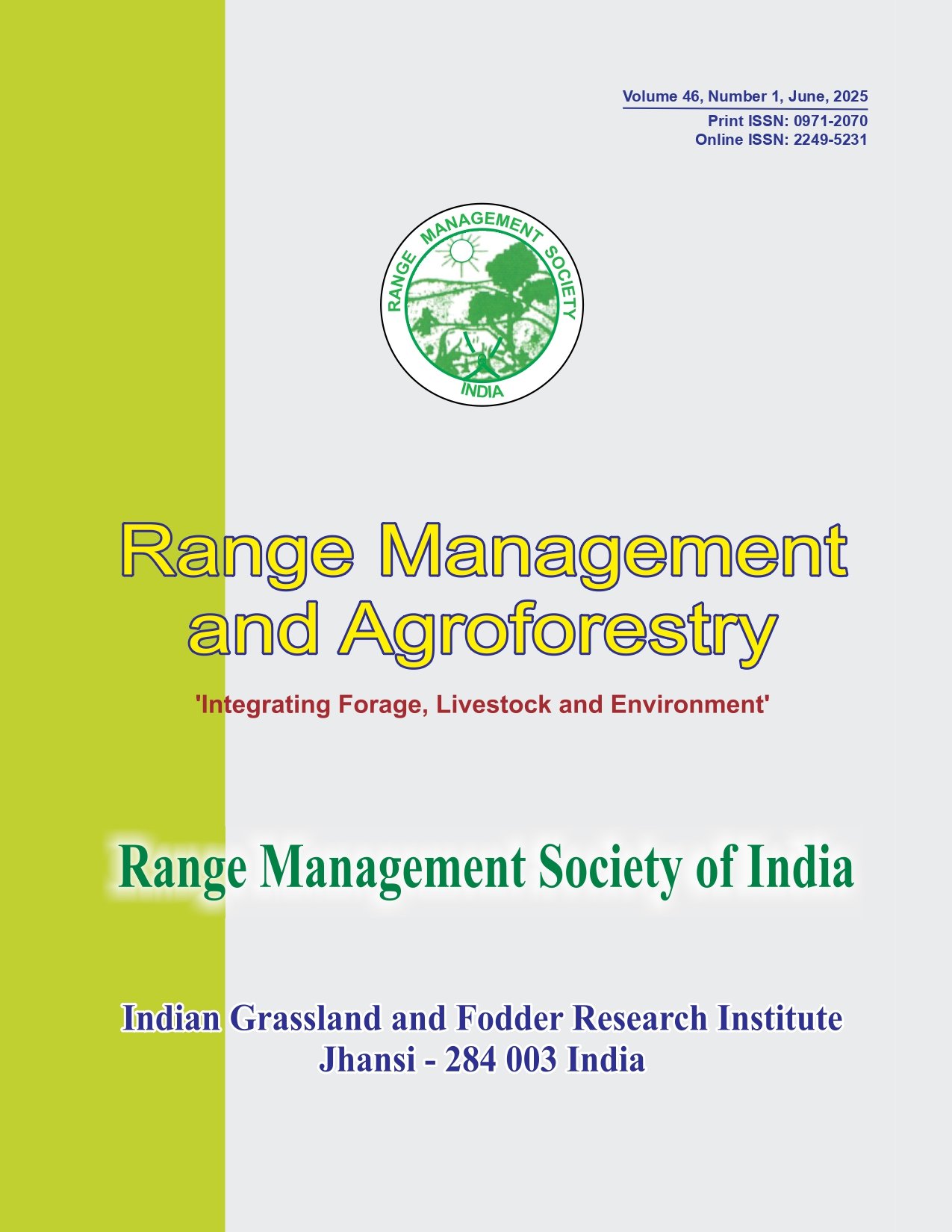Seasonal incidence, biology and management of fall army worm (Spodoptera frugiperda, J.E. Smith) on fodder maize
Keywords:
Entomo-pathogens, Fall army worm, Fodder maize, Seasonal incidenceAbstract
Seasonal incidence of fall army worm in maize at Dharwad indicated its occurrence both in kharif and rabi seasons. The incidence was more during the kharif season. Highest incidence of 50% was noticed during last week of August and second peak incidence of 30% was noticed during last week of December. Correlation between seasonal incidence of fall army worm and weather parameters indicated that there was a significant negative correlation with the rainfall (-0.60**) and morning humidity (-0.50*). Biology of fall army worm indicated that it completed its total life cycle in 31-44 days on maize comprising of six larval instar stages. Among the entomo-pathogens tested against the fall army worm, Metarhizium (Nomuraea) rileyi (2 x 108 cfu/g) was found to be superior and it was at par with neem formulation (azadirachtin 3000 ppm) @ 5ml/l.




